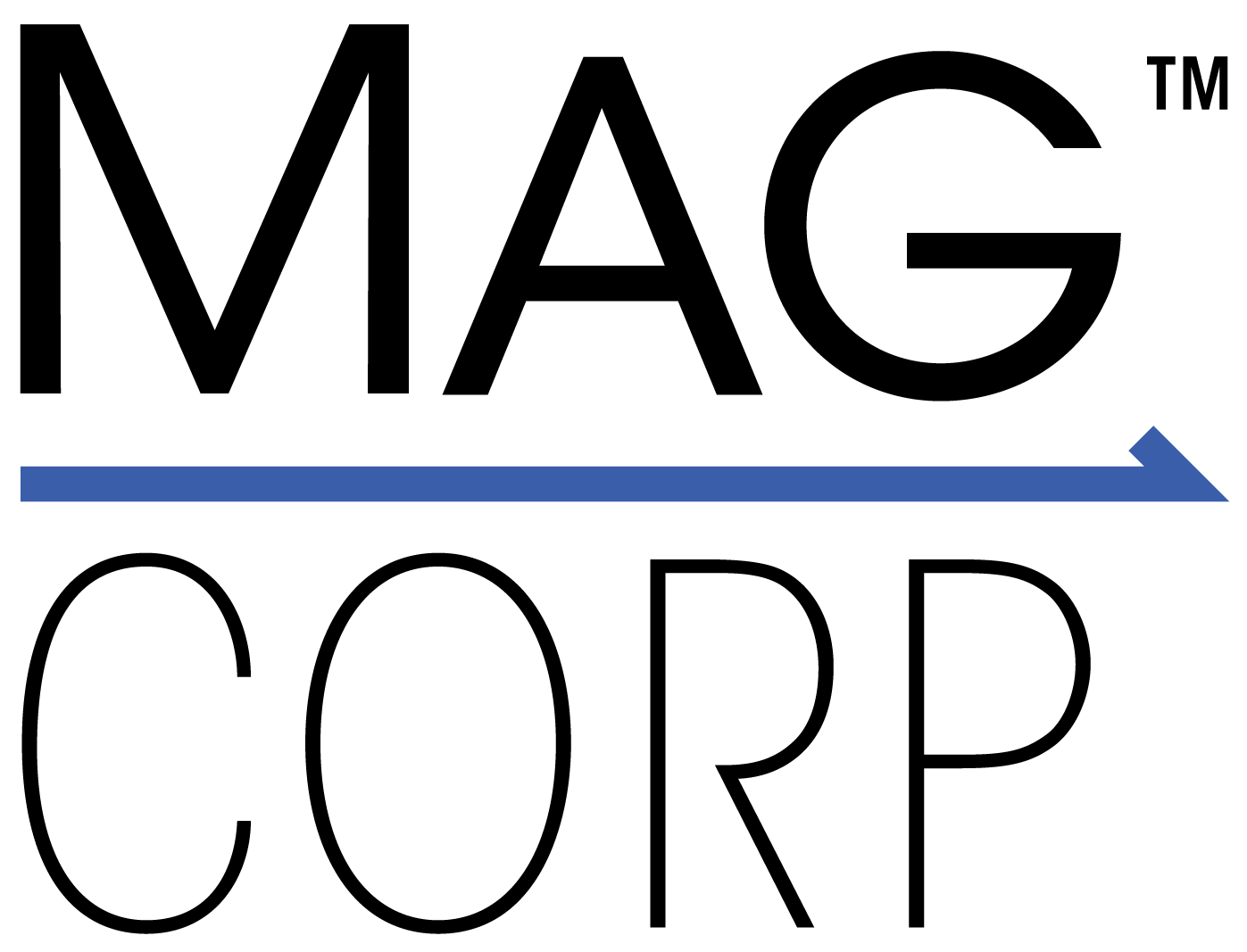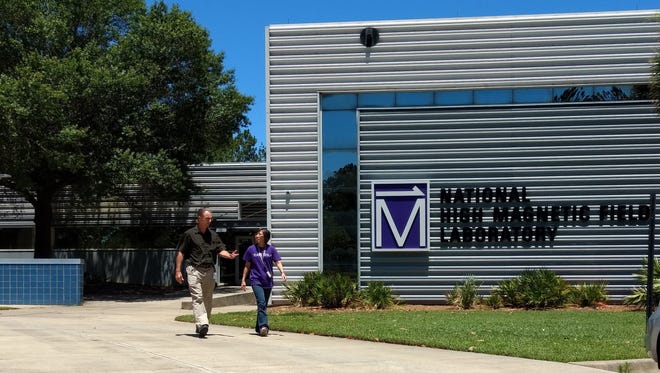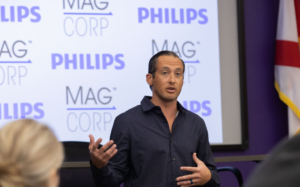Author: Byron Dobson, Tallahassee Democrat
https://www.tallahassee.com/story/news/2021/01/25/mag-lab-partners-tallahassee-firm-market-science-industries/6681479002/
The National High Magnetic Field Laboratory at Florida State University has entered into a five-year agreement with MagCorp in Tallahassee that both sides say will strengthen relationships between the university and private industry.
The goal: Matching discoveries by scientists in the lab with industries in need of these advancements and having that intersection handled by a third entity that serves as a conduit between the two.
MagCorp will work with experts at the MagLab to provide solutions for magnetically enabled technologies across multiple business arenas, including medical technology, textiles, manufacturing, consumer products and defense, the university said in a release.
An economic impact study conducted in late 2019 for the Tallahassee MSA shows the MagLab annually generates $221 million in economic output; $94 million in income and generates 2,176 jobs.
“This agreement is a wonderful opportunity for the experts at our National High Magnetic Field Laboratory to apply their skills to industry problems, while also helping promote economic development in our community,” said FSU’s Provost and Executive Vice President for Academic Affairs Sally McRorie.
MagCorp provides expertise in helping its clients tackle the risks associated with developing magnetic technology by breaking down larger ideas into smaller projects.
Any new technologies or techniques developed as a result of these projects would be patented and the intellectual property would be split among Florida State, MagCorp and the client.
MagCorp was founded by three former or current MagLab employees. Abby Queale, a 2011 graduate of FSU’s College of Law and former associate general counsel and senior licensing manager at FSU, is CEO. The other partners are Jeffrey Whalen, STEM entrepreneur in residence at the Jim Moran College of Entrepreneurship and Lezlee Richerson, administrative specialist in the director’s office of the Mag Lab.
The five-year partnership runs through 2025. Twenty-four experts and technicians, including 14 faculty members, have already begun working on projects related to a variety of areas such as sensors, orthopedics and textiles.
“The goal of this partnership is to put the MagLab to work for industry in a way that is effective, collaborative, and easy to understand,” Queale told the Tallahassee Democrat. “It could be beneficial to Tallahassee-Leon County because as far as we know, there is no other partnership like this between a private company and a national laboratory, so our new collaboration model can be leveraged to attract businesses that offer magnetically enabled products.
“The MagLab is the home to some of the strongest magnets in the world, so they have seen it all,” she said. “However, consumer products typically operate at much, much lower magnetic fields. I like to tell our clients if you’re trying to get to the moon, why not talk to the folks who have been to Mars?”
Queale said the agreement is designed for collaboration.
For example, she said, clients prefer to develop their magnet technologies in smaller steps so they can easily pivot if needed. The public sector, on the other hand, is very good at conducting larger, more long-term projects to make new scientific discoveries.
“The master format of our partnership agreement allows us to pivot easily instead of having to go back and negotiate a new agreement each time we take the next step forward or pivot with our clients,” she said.
Queale said the shared intellectual property factor is important in advancing the collaboration between scientists at the MagLab and the private industry.
“We think it makes sense to share the intellectual property which reduces negotiation times and provides a truly collaborative environment for the scientists,” she said. “The resulting intellectual property is more valuable because the MagLab is addressing a need that industry has right now. Our clients receive first rights to an exclusive commercial license.”
Queale said Magnetic Resonance Imaging (MRI), is a good example of research development at the Mag Lab that could be matched with an industry.
The fact the three founders have an understanding of the MagLab – located within Innovation Park in southwest Tallahassee – gives them credibility in advancing a new model of connecting scientific research with industry.
“The creation of MagCorp opens the door to new and dynamic industrial partnerships for the MagLab that are driven by applied science questions, while allowing the lab to stay focused on our core foundational research-driven user program,” MagLab Director Gregory Boebinger said.


